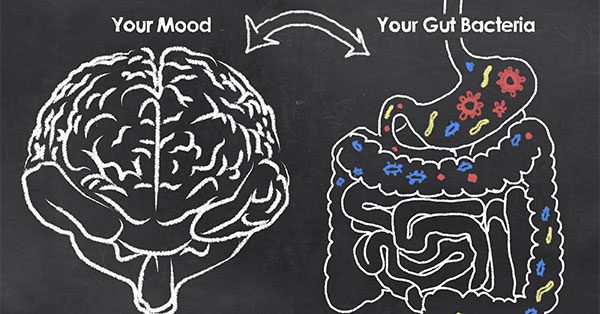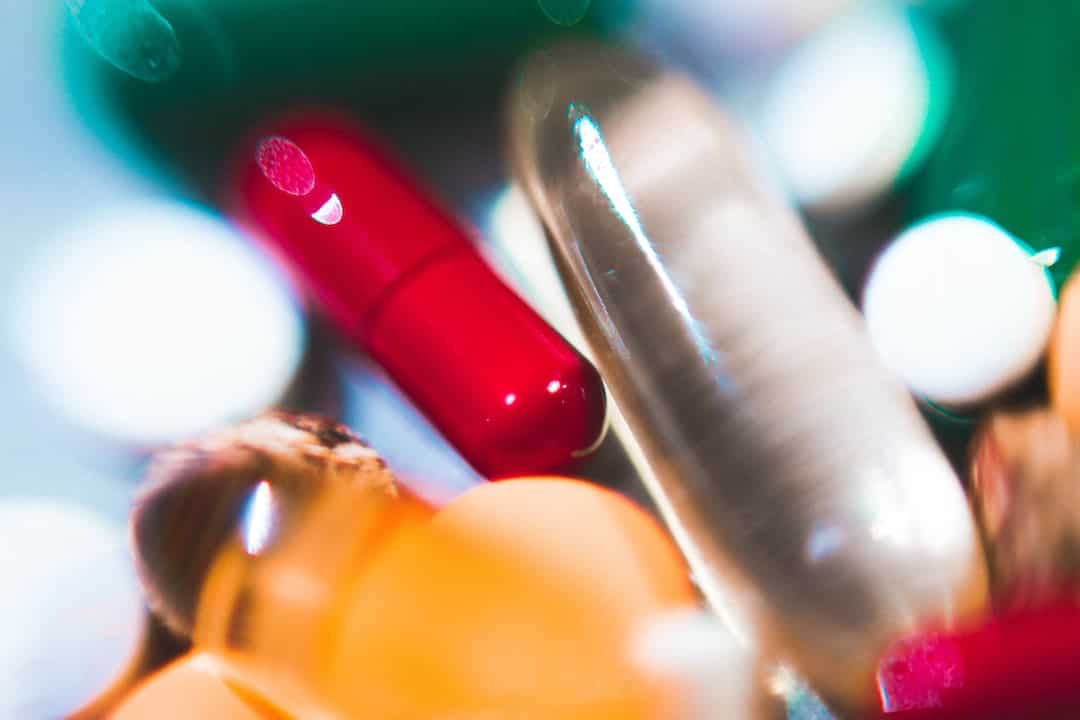Mental Health Care: The Best Psychobiotics for Depression
Depression can be hard to manage, but there may be an unexpected solution: psychobiotic supplements. Psychobiotics, living microorganisms linked to mental health benefits, may be a viable solution for managing depression. If you’re looking for the best psychobiotics for depression, look no further.
In this article, we’ll explore the power of psychobiotics to improve mental health and reduce symptoms of depression – from what they are, which ones are most effective in treating it, to how to take them safely. So if you’re ready to learn more about using the best psychobiotics for depression as part of your self-care routine – keep reading.
Table of Contents
Understanding Psychobiotics for Depression
Psychobiotics, a probiotic supplement, have been clinically demonstrated effective in managing depression. Psychobiotics, including helpful microorganisms and yeasts that can potentially decrease inflammation, alter stress-related hormones, and modify brain activity to benefit mental health.
The notion that the microbial composition of our intestines can influence mental health is the basis for psychobiotics as a treatment for depression. Gut dysbiosis, an imbalance between good and bad bacteria in the digestive system, is linked to various mental illnesses such as depression or anxiety disorders.

(Source)
Studies indicate that some varieties of psychobiotics could potentially be beneficial in managing symptoms related to depression. Studies have shown that Lactobacillus plantarum can lessen depressive tendencies in animal models, while Bifidobacterium breve has been effective against anxious behaviors when administered orally.
Psychobiotics work offers a promising alternative to traditional antidepressant treatments for those suffering from depression, and the next heading will explore which strains are most effective in alleviating symptoms. Bifidobacterium breve and Lactobacillus plantarum have been studied extensively as potential treatments for anxiety and depressive behavior patterns exhibited by animal models.
Best Psychobiotic Strains to Alleviate Depression Symptoms
Psychobiotics have become a favored substitute for classic antidepressant drugs due to their potential to alleviate depression symptoms. The use of psychobiotics is based on the idea that bacteria in the gut can influence mental health, and there are several strains that prove to be particularly effective at reducing psychological distress among people suffering from various chronic illnesses. Below are some of the best psychobiotics for depression based on extensive studies
Lactobacillus plantarum has been studied extensively for its efficacy against depressive behavior patterns in animals. This strain produces metabolites such as gamma-aminobutyric acid (GABA) and serotonin, which play important roles in regulating moods and emotions.
In addition, Lactobacillus plantarum also helps reduce inflammation by producing anti-inflammatory molecules like short-chain fatty acids (SCFAs). It is thought that the SCFAs generated by this strain may aid in facilitating neuronal interconnectivity, potentially leading to improved cognitive performance and emotional health.
Bifidobacterium breve has also been shown to be effective against anxious behavior patterns exhibited by animal models. This species of probiotic produces neuroactive compounds such as GABA and dopamine, which are known to promote a calming effect on the nervous system. Bifidobacterium breve can help decrease inflammation by producing molecules like butyrate that enhance communication between neurons in the brain and lead to better mental health.
Incorporating Psychobiota Into Your Diet
Research into the use of psychobiotics to treat mental health issues is increasing, and initial results are encouraging. Psychobiotic supplements that interact with the brain via the gut-brain axis, have been observed to be beneficial in improving mental health. Incorporating these beneficial bacteria into your diet may help reduce symptoms of depression and anxiety, as well as improve overall digestive health.
Bifidobacterium longum 1714 was observed to be beneficial in reducing anxiety levels when taken for 8 weeks compared to placebo groups, as seen in a double-blind study. Lactobacillus rhamnosus was also found to lower anxiety levels among healthy volunteers after taking it for 3 months compared with those who took a placebo pill during this same period.
Fermenting veg like sauerkraut can be an excellent way to diversify the microorganisms in our systems, thereby reducing stress hormones and enhancing beneficial bacteria. It can lead to better emotional processing abilities and an improved overall mood – all while getting a delicious treat. Incorporating these probiotic-rich edibles into your regimen is essential for better psychological health.
Adding psychobiota into your diet can help improve mental health symptoms such as depression. When picking a psychobiotic supplement, it is essential to consider the proper type; this article will offer advice on selecting the best psychobiotics for depression that suits you.
Tips on Choosing the Right Psychobiota Supplement
When selecting a psychobiotic supplement, it is essential to consider strain specificity as some bacteria strains may be more effective than others for treating mental health issues. Strain specificity is one of the most important; while many supplements contain multiple strains of bacteria, some may be more effective than others for treating depression or anxiety disorders.
For example, research has shown that Lactobacillus plantarum can reduce depressive behavior patterns in animals, while Bifidobacterium breve has been found to reduce anxious behaviors in animal models. Dosage form should also be considered when choosing a supplement – capsules are often easier to take and provide a consistent dose each time. Other considerations include storage conditions (e.g., whether refrigeration is required) and the expiration date/shelf life of the product bought.
Psychobiotics communicate between cells throughout the body, including hormones like serotonin, which may help regulate moods and reduce stress levels, to relieve symptoms of mental health issues. This communication has been found to modulate emotions and decrease stress levels gradually, thereby producing an anti-inflammatory result on the microbiome-gut-brain connection. Doing so may alleviate symptoms connected with psychological health issues such as depression or anxiety disorder.
In other words, probiotics can provide an extra layer of support when treating mental illnesses – so don’t forget to factor them into your overall treatment plan.
FAQs in Relation to Best Psychobiotics for Depression
What is the most effective probiotic for depression?
Probiotics have been studied for their potential to help with depression. Research suggests that certain probiotic strains may be effective in treating mild-to-moderate symptoms of depression. Lactobacillus helveticus R0052 and Bifidobacterium longum R0175 have been studied for their potential to reduce anxiety and improve mood in clinical trials.
Other promising probiotic strains are Saccharomyces boulardii, Bacillus subtilis, Lactobacillus plantarum 299v, and Bifidobacterium breve M-16V. Further exploration is essential to determine the efficacy of these probiotics for depression, yet they may be beneficial when integrated into a comprehensive plan to address mental health concerns.
What is the best probiotic to increase dopamine?
It is uncertain which probiotic may be best for augmenting dopamine levels, though certain connections have been suggested. Certain strains of Lactobacillus and Bifidobacterium have been suggested to potentially enhance dopamine production and other neurotransmitters, such as serotonin and GABA. However, further research is required before any definitive conclusions can be made.
More studies are necessary to ascertain which strain or mix of strains is most advantageous for enhancing dopamine concentrations. A healthcare provider can be consulted to determine the ideal probiotic for one’s individual requirements.
What gut bacteria help with depression?
Studies have suggested that certain gut bacteria, such as Bifidobacterium and Lactobacillus, may be beneficial in alleviating symptoms of depression. These probiotics have been found to increase the production of neurotransmitters like serotonin and dopamine to improve mood.
Additionally, they are believed to regulate inflammation in the brain which is linked to depression. By maintaining a healthy balance of gut bacteria through diet or supplementation, it is possible to support mental health naturally.
Conclusion
The best psychobiotics for depression can be a powerful tool in managing and treating the condition. Though psychobiotics can be beneficial, it is essential to combine them with other treatments such as therapy or medication for maximum efficacy. Consulting with your doctor about what psychobiotic might work best for you will help ensure optimal results when treating depression.
Discover the best psychobiotics for depression and unlock a healthier, more independent lifestyle with Smart Living Now. Empower yourself today to take control of your mental health journey!



